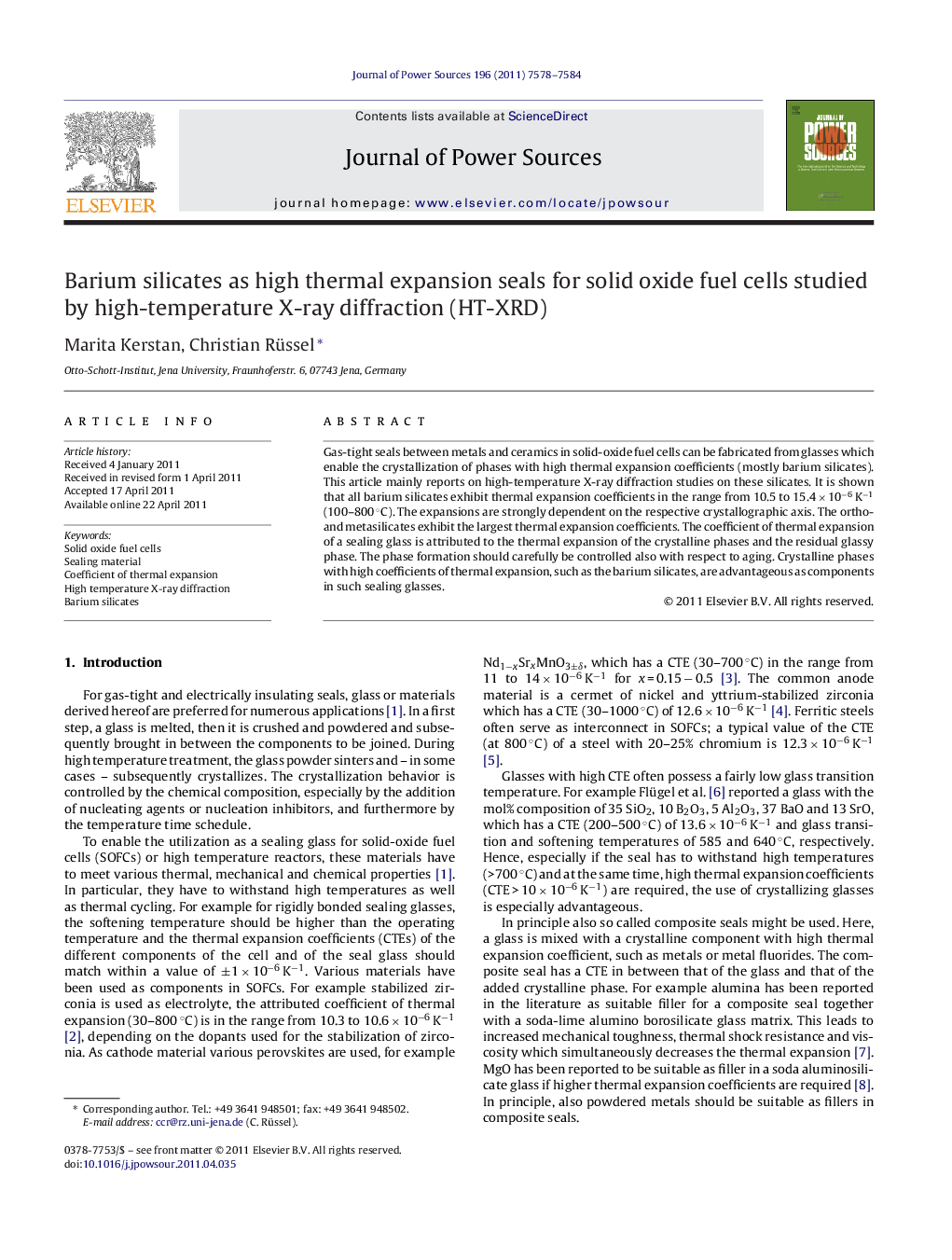| Article ID | Journal | Published Year | Pages | File Type |
|---|---|---|---|---|
| 1293376 | Journal of Power Sources | 2011 | 7 Pages |
Gas-tight seals between metals and ceramics in solid-oxide fuel cells can be fabricated from glasses which enable the crystallization of phases with high thermal expansion coefficients (mostly barium silicates). This article mainly reports on high-temperature X-ray diffraction studies on these silicates. It is shown that all barium silicates exhibit thermal expansion coefficients in the range from 10.5 to 15.4 × 10−6 K−1 (100–800 °C). The expansions are strongly dependent on the respective crystallographic axis. The ortho- and metasilicates exhibit the largest thermal expansion coefficients. The coefficient of thermal expansion of a sealing glass is attributed to the thermal expansion of the crystalline phases and the residual glassy phase. The phase formation should carefully be controlled also with respect to aging. Crystalline phases with high coefficients of thermal expansion, such as the barium silicates, are advantageous as components in such sealing glasses.
► We examined the thermal expansion of various crystalline barium silicates. ► Thermal expansion was studied by dilatometry and high-temperature X-ray diffraction. ► High-temperature X-ray diffraction is advantageous to determine thermal expansion. ► Barium orthosilicate and barium metasilicate exhibit the highest thermal expansion.
